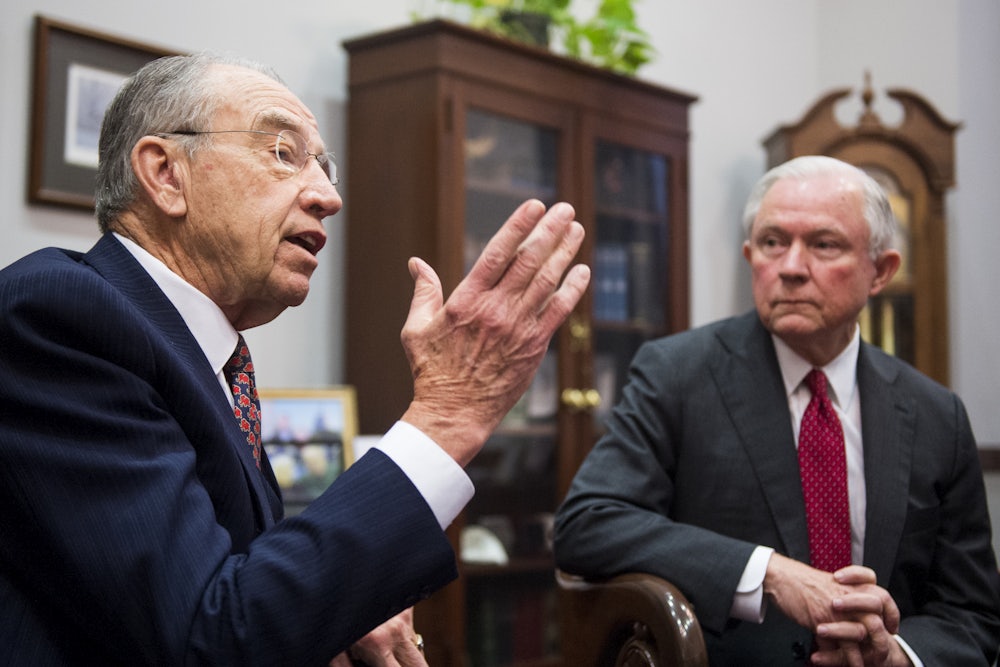It was meant to be the bipartisan success story of 2016, but a combination of congressional dysfunction and the election of Donald Trump—who ran on a “law and order” platform—caused a bill spearheaded by Iowa’s Chuck Grassley to flounder. “Criminal justice reform will be one of the legislative bills I plan to bring up early on,” Grassley said in a statement to Politico. “It cleared the committee with a broad bipartisan majority in the last Congress, and I don’t expect that to change.”
Several factors could contribute to the new bill’s success. First, Jeff Sessions, one of the legislation’s leading opponents on the Judiciary Committee, is expected to be the next attorney general, meaning it will face less resistance in the Senate. Second, forthcoming partisan battles over key cabinet nominations and Obamacare might leave the Trump administration and Congress desperate for a win. Like last year’s bill, Grassley’s proposal will reportedly focus on reducing the mandatory minimum sentences for nonviolent crimes and preventing recidivism.
While this is potentially good news, one must acknowledge the roots of recent Republican enthusiasm for criminal justice reform. Many fiscally conservative members of the GOP have started to realize that the overwhelming cost of maintaining prisons and a prison population no longer make sense, particularly in the midst of a decades-long drop in crime.
And while many GOP lawmakers have cited “common sense” and compassion as reasons to revisit harsh criminal laws, there are also more sinister motives. For example, the Koch brothers’ recent partnership with reform advocates like Van Jones and the Center for American Progress are cosmetically positive. But Jane Mayer has reported that their interest in criminal justice began only after they were charged with environmental crimes. After spending years fighting, and eventually settling with, the Justice Department, the Koch brothers began advocating against what they called the overcriminalization of America. And so while 2017 might be the year of criminal justice reform, those changes might come with strings attached.
